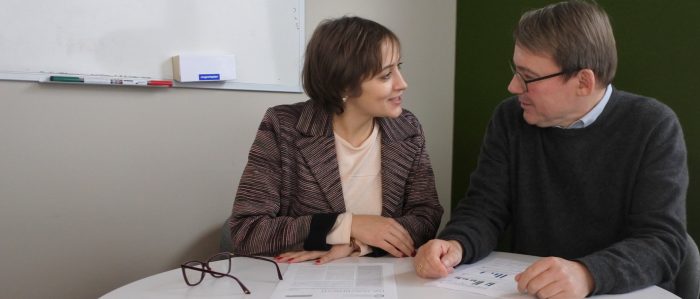An inteview with the IAB researcher Herbert Brücker and Yuliya Kosyakova on the second wave of the IAB-BAMF-SOEP Survey of Refugees.
Digitisation will leave a strong mark on the working world of today. Including leadership styles, structures, and cultures. The article by R. Dreyhaupt, F. Gustke, L. Pierkes and M. Schmutzler discusses what kind of leadership digitisation requires in the first place and how companies can prepare for the imminent changes.
The article focuses on online gig economy which is transnational and spans a full spectrum of skills, from data entry to software development. The gig economy offers an interesting view to the future of skills, social protection, and industrial relations in Europe.
Prof. Wilhelm Bauer describes trends of working in the digital transformation.
A good 70 percent of refugees in Germany come from eight non-European asylum seekers’ countries of origin. Their integration into the German labour market has increasingly gained momentum in recent years. Hence, the employment rate of people from these countries who have moved to Germany since the end of 2014 increased by almost 9 percentage read full article
Platform work is increasing worldwide, leaving a serious lack of social protection. In spite of the international and flexible character of platform work, extending social security is feasible – if one is ready to explore new avenues. This article is on setting out for Digital Social Security.
There is a large wage gap between women and men. The search for explanations and solutions must start exactly where wages are decided: in the enterprises. In Germany, operational measures to promote equal opportunities of women and men and formalised Human Resources processes shall help reduce this gap and ensure fair wages. Can this work?
On the 1st January 2015, a nationwide statutory minimum wage of €8.50 was introduced in Germany. On 1st January 2017 it was then increased to €8.84. Prior to and during its introduction the economic policy debate focused mainly on the development of wages and the minimum wage’s possible effect on the level of employment. Besides read full article
Policy advice is an integral part of policy-making in contemporary democracies and a central task of the IAB. But what makes “good” policy advice? Even if the quality of individual advisory services cannot be measured, quality criteria can be identified and quality assurance methods can be outlined.
<< Newer Posts:::Older Posts >>









